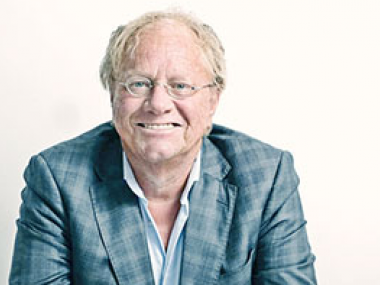Our expert - Hen Gerritse
Edited on
02 April 2019Every URBACT network has a Lead Expert, who tries to help to the partners, to find the best way to implement their plans. Our Lead Expert is Hen from the Netherlands. We asked him, about some important topics.

Why is so important to boost creative entrepreneurship through creative-based urban strategies?
The creative sector can be very important for the quality of the urban life. Dwelling around in cities with a lively creative community is much more interesting. But the creative sector can also be a generator for employment and innovative ideas. This is what we saw in many cities which we visited in the framework of the Creative Spirits project.
What is the final goal of the Creative Spirits project?
The main objective of the Creative Spirits is to boost the creative sector in order to create new jobs and also to contribute to the socio/economic development of cities. The project is supposed to help cities to overcome strategy implementation obstacles.
What are the most difficult tasks in the Creative Spirits?
It depends. As a Lead Expert I am (amongst other tasks) responsible for creating a stimulating environment for cooperation and knowledge transfer between the participating cities. I think I managed to do so but it is not always easy because for the civil servants active in this project the work to be done for Creative Spirits comes on top of their existing tasks and this is sometimes conflicting.
What is your experience about the co-operation between the creative entrepreneurship and the local decision makers in different countries?
There is clearly a difference. Some cities are more advanced and decision makers have recognised the importance of the sector. Other cities are more in the beginning of this political awareness raising process but they have learned a lot about strategies and tactics from the more advanced cities.
What kind of good practices have you seen ? And can the cities build this practices in to the implementation plans?
In this project we are discussing the challenges they have linked to the implementation of their creative sector strategies. We have seen in Ujbuda that the city is really investing in creating spaces for the creative sector where they can develop themselves. This is also the case in Loule (PT). In Waterford (IR) they managed to integrate other policy sectors very well in the implementation process. Recently we saw in Maribor (SI), and earlier in Sofia (BG), Kaunas (LT), the importance of private initiatives. Ravenna (IT) is a good example how temporary use of abandoned spaces can be done in a very creative way using the energy available in the city. They created a sound basis for further development and the decision makers of the cities have a sound basis to step in with further and detailed support. In Lublin we saw that the city has developed a good indicator system to measure performance and to measure the impact of the creative strategy
How is the knowledge exchange is doing between the partners?
I prefer to talk about knowledge transfer. At all our case study visits capitalising on existing knowledge and finding ways to transfer this knowledge from one city to another has been the main goal.
What kind of creative industry sectors has a real effect on the urban development?
That is difficult to say. It is more (as I said before) that the creative sector can be generator for a vibrant urban life and the urban development policies should support this by creating space and room for implementing new initiatives
What do you think? How many partner cities can implement their plans?
Somehow all partners will be able to implement at least a part of their plans. I am sure that the Creative Spirits project has helped them. In any case the project has created policy attention in all cities and this is one of the most important steps to get further funding
Should the cities have further sources from the EU, to the implementation?
Financial sources are always an issue. All cities should make a scan of the concrete actions they are thinking of and link this to existing and future available local, national and international financial instruments
Submitted by Artur Katai on
